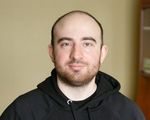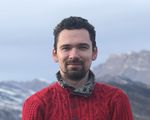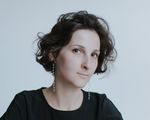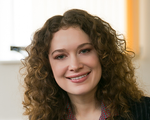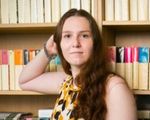About Success Builder
How do you find your place in life? How do you find something to do that both comes naturally to you and makes you happy? The answer is that you have to apply the knowledge you’ve gained from university and from life itself correctly. The Success Builder Project features HSE University graduates who have discovered themselves through an interesting business or an unexpected profession. The protagonists share their experiences and lessons learnt and talk about how they’ve made the most of the opportunities they were given.
The Abrau-Durso group of companies is a leader in the Russian winemaking market. Tatiana Babina, a graduate of the continuing professional development (CPD) programme at HSE University, is working to maintain and strengthen that position. In this interview with Success Builder, she explains why she chose HSE University, why an accomplished specialist needs to continue her studies, and whose opinion in the company reigns on the subject of winetasting.
Your basic education is in Management. Why did you choose that field?
I chose Management as a broad educational platform, but working in marketing was my childhood dream. I clearly recall seeing my first TV commercial, and for some reason, associating marketing with that in my imagination. Creating beautiful images and slogans and making people love a product—all this seemed somehow unattainable and difficult. I started working in international relations and PR, but soon realised that it was marketing that combined everything I liked—creativity, analytics, and communication. And I wanted to adjust my professional track slightly by choosing the best CPD at that time, which was at HSE University. It gave me a completely new perspective on what I was doing and what I needed to do.
Why wasn’t your first degree enough for a career?
You choose your first major at the age of 17, guided by your abilities or role models. I liked everything—mathematics, history, foreign languages and social studies—so I couldn’t settle on one thing and went for the broadest possible education, which was in international relations. Sure, I ended up having to study more later, but that’s how it should be: earning another degree every 3-5 years is the gold standard for a marketing professional.
Why did you choose the HSE University programme?
I wanted to study at one of the top universities because it once happened that I was one point short of getting into Moscow State University. I probably had an unfulfilled gestalt on this subject. Also, HSE University is known for providing an education that is applicable to the real world. I was already working then and I didn’t have the time or desire to spend 4-5 years of my life on daily studies at a university. I was looking for a short programme and wanted to be immediately immersed in the practical aspects of marketing and branding.
I was working in PR at the time and I had an expanding set of marketing tasks. I needed the know-how and tools for launching and promoting products.
I chose the HSE University programme without hesitation, took a break from work and left for South America to reboot. I returned just in time for the start of my course at HSE, full of strength and inspiration
I think this is one of the reasons why it was so interesting for me to study. I recommend it!
What new and revolutionary things did this programme bring to your life and work?
HSE University helped me find my dream job and get what I wanted so dearly—my first experience in brand management. I had long thought about trying to get a job at a company selling spirits. At that time, it was considered very prestigious and highly paid, and it required a broad outlook and creativity. And I decided that I could do it.
After finishing my course at HSE University in 2012, I actually got a job in such a company. At the interview, I was given an extensive test, 80% of which consisted of questions on subjects I had studied a month earlier at HSE. As a result, I was hired on as a Junior Brand Manager even though I had no experience whatever in branding. Next came three and a half years of very intense work that gave me a unique, hands-on reinforcement of everything I had learned, as well as career and financial growth, my first accomplishments and very cool business cases.
Then I worked at several FMCG companies [fast-moving consumer goods such as food, household chemicals, personal care products, etc. —Ed.], and in 2019, I got into sparkling wines. In between, I earned a full-time MBA in Spain.
Why did you need an MBA?
I wanted to progress. I am passionate about learning. It establishes a certain rhythm: I studied at the university, worked, attended courses, learned Spanish and graduated from HSE University. Now several years have passed and I already want something else. I realised that I had reached the ceiling in my career; I wanted to move on, to look at business from a new angle. With this in mind, I soon concluded that I needed an MBA.
It was interesting to get an education abroad, to make new connections and gain a broader perspective of the company’s work. I feel a greater affinity for Europe than I do for, say, the U.S. Spain attracted me because the programme was taught in English, it was affordable despite the fact that it was a prestigious university and, thanks to my knowledge of Spanish, I had no language barrier in the country. And it is all in the heart of Europe, where for 360 days a year you are surrounded by sun, travel, delicious food and wine, as well as a multicultural environment in the heart of an insanely beautiful city. I spent a year in Madrid and not only grew professionally, but also significantly improved my soft skills thanks to the huge amount of work in groups and informal communication.
How did that education change things for you?
Regarding career, it is one more advantage in an interview. And of course, it lays a good foundation for future career growth.
The greatest effect of an MBA is on you personally because it structures your thinking and you begin looking at business processes differently
Now I take a more comprehensive view of projects, which allows me to find solutions in related areas: find ways to save money in logistics and production, accelerate processes, and delegate and think outside the box—as they drummed into us in the MBA programme. Understanding in detail not only your own work, but also someone else’s allows you to become a multi-system agent which, in fact, is what a marketing professional should be. As I see it, a brand manager brings all the functions of a company together so that a new product is born, and so the existing products become more interesting. Her task is rather aggregating, like a producer, and understanding other functions helps a lot.
What attracted you to the FMCG industry?
I’ve worked in FMCG since 2012 and am very comfortable in this environment. I love new product launches; it’s nice to see them on the shelf after a few months of work. For example, in the machine-building industry, a product goes through a lifecycle of 20 years from the moment it is first put into development to the time it is brought to market, launched for sale, and then upgraded.
22,439 tons
The volume of grapes Abrau-Durso processed in 2021
Under such conditions, it is very difficult for a marketing expert to maintain a sense of connection to the product, but for me, this is the most important component of the work. In FMCG, everything is very dynamic and has the greatest possible number of innovations in products, packaging, and advertising. And working in a company that manufactures the product, and doesn’t just import it, the manager has more leverage both over the product and ways to promote it. For someone in marketing or PR, this is an excellent school.
How did you end up at Abrau-Durso and what makes it interesting?
I came to the company in the standard way—through HeadHunters. At the interview, I was on the same wavelength with the manager. He was interested in my competencies and personal profile, and I liked what the company did, its reputation, and the opportunities that the position offered. Sparkling wine is attractive, it is a product that lifts your mood and brings joy. These are emotions that are interesting to work with. And the trip to Abrau-Dyurso was a very inspiring experience. This is an incredible place to which you want to return.
The company has a unique history. The main production facility has been located in the village of Abrau-Dyurso for more than 150 years. The company also has other factories, but the sparkling wine comes from there. Moscow is home to the sales and marketing departments, shops, a restaurant, and a management company not connected to production. Despite the scale of the brand, the whole company is like one big family; there is no huge PR operation in Moscow, but there is a beautiful facility in Abrau-Dyurso where we love to go. The beauty there helps us recharge our batteries.
Does your company have an official chief connoisseur of wines?
Our chief winemaker came from France and had worked in Champagne for a long time. The company has a team of oenologists, technologist, and ambassadors who are responsible for winetasting and representing us at events. I myself have taken sommelier courses, and this helps a lot both in and out of work. Of course, we work closely with the professional community of wine connoisseurs, participate in competitions and organize events, meetings and much more ourselves. Over the years, the company has developed an extensive network with the professional wine community, which has become part of our assets.
By working with celebrities and prominent winemakers, we have risen to the international level of independent opinion. We work closely with wine guides, the media, and bloggers—which also doesn’t exclude personal contacts, and allows us to deepen the level of trust in the product through the opinion of industry professionals.
How has innovation affected your industry?
Oddly enough, we were among the first to weather digitalisation, with the introduction of the EGAIS system making it possible to track every bottle you buy and learn where and when it was made, and by whom. You can check each purchase by simply using your mobile phone. Similar processes are now underway with bottled water and other products. Such global tracking affects business processes and additional labeling is used in production. Abrau-Durso sells about 50 million bottles a year. That’s a lot, so the production process is constantly devleoping, introducing new equipment and technologies. In such a dynamic environment, you also want to develop.










